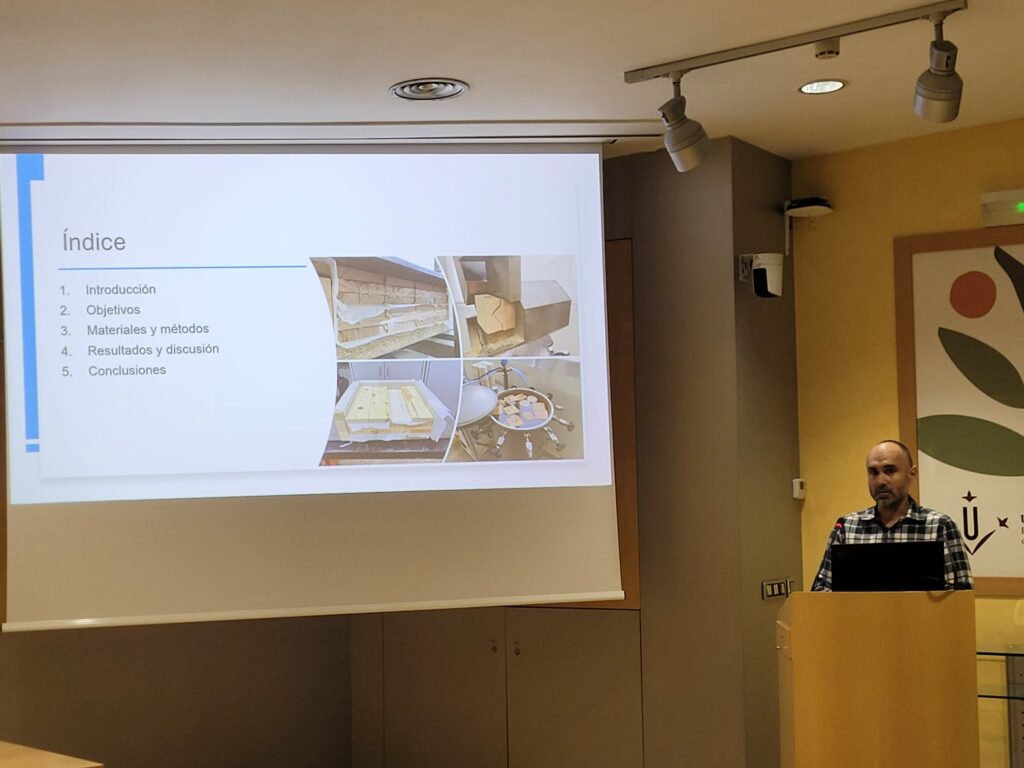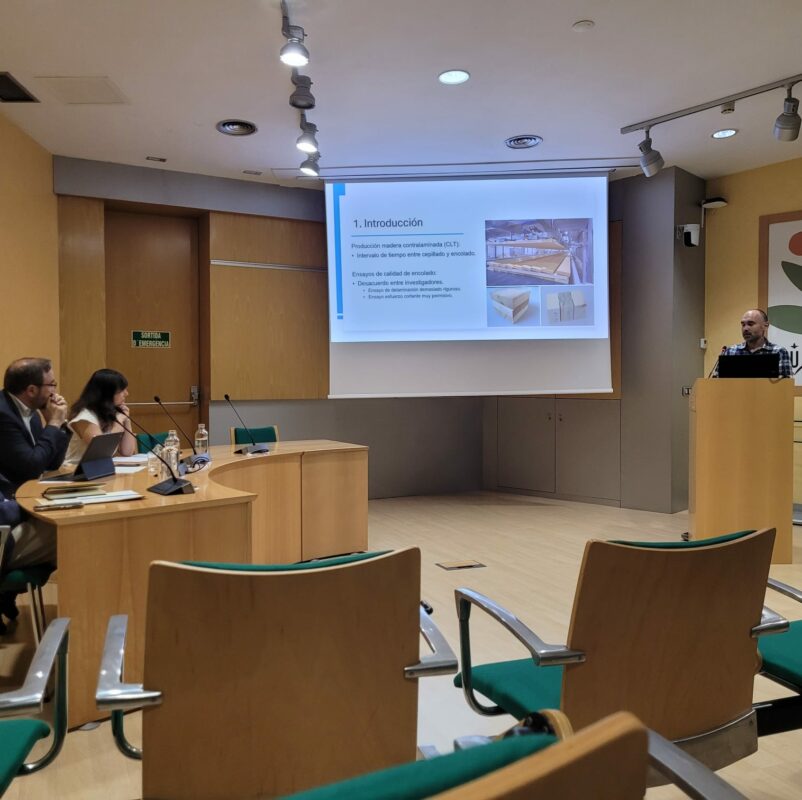The study validates the use of Mediterranean woods in CLT and highlights melamine as the most effective adhesive
The limited valorization of Mediterranean wood species, shaped by their growth in irregular climatic conditions, has traditionally restricted their use in secondary processing, where greater homogeneity and structural quality are required. However, appropriate treatment and processing could not only reduce these singularities but also yield competitive products compared to Central European woods.
In this context, Marcel Vilches, a researcher in the INCAFUST group at the Forest Science and Technology Centre of Catalonia (CTFC), has defended his doctoral thesis at the University of Lleida, entitled “Bonding Quality of Structural Wood Products Developed with Mediterranean Species.” Supervised by María del Carmen Iglesias Rodríguez and Eduard Correal Mòdol, the thesis focuses on analyzing the potential of Mediterranean woods to produce cross-laminated timber (CLT). This innovative product, increasingly used in sustainable construction, opens new opportunities for the valorization of these species and for overcoming the limitations imposed by their natural characteristics.

The research was carried out in three phases. First, Vilches evaluated the bonding quality of four Mediterranean species —Aleppo pine (Pinus halepensis), black pine (Pinus nigra), Scots pine (Pinus sylvestris), and chestnut (Castanea sativa)— according to UNE 16351 standards and the European ETA for CLT. In the second phase, the study examined the effect of the time elapsed between surface planning and the gluing process, testing intervals ranging from one hour to 720 hours. Finally, the research assessed the validity of current standardized tests, comparing them with alternative specimens that could provide a more accurate evaluation of bonding quality.
In total, 75 CLT samples were produced using the four species and two adhesives, melamine and polyurethane. The results demonstrate the suitability of Mediterranean woods for CLT production, with melamine adhesive proving particularly effective. One of the most significant findings was the decrease in bonding quality when two weeks passed between planning and adhesive application.
Thus, the dissertation provides key knowledge for the development of new products based on Mediterranean wood and paves the way for their integration into the construction sector, contributing to diversification and the advancement of a more sustainable model.
Last modified: 4 September 2025










